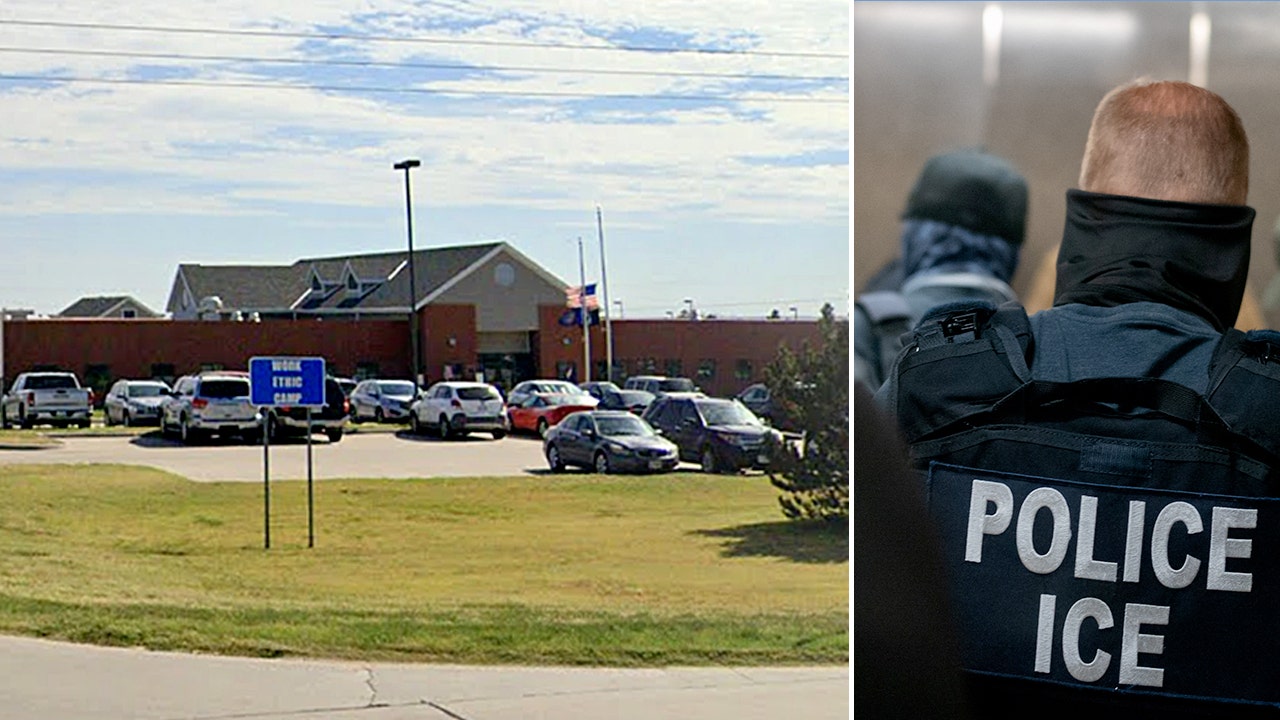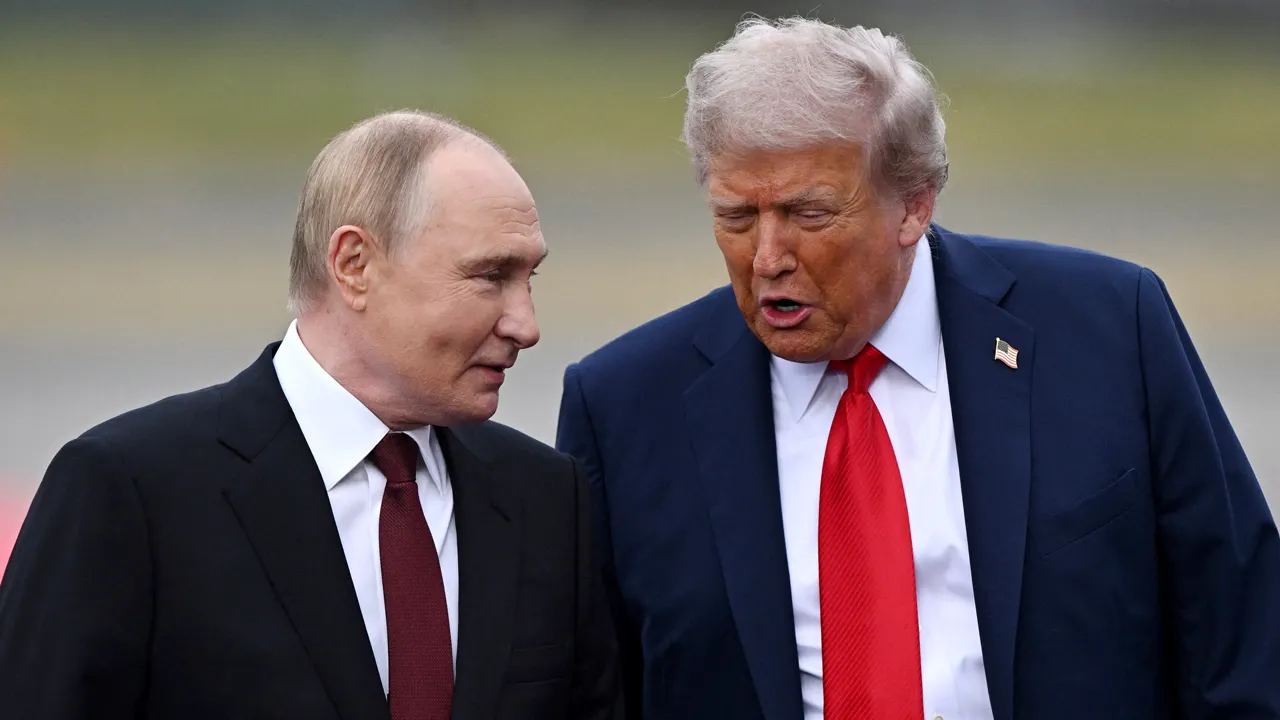Zohran Mamdani, the Democratic mayoral nominee, said that while he still had doubts about city casinos, he respected the views of voters who supported them.

Aug. 20, 2025, 5:48 p.m. ET
As a state lawmaker, Zohran Mamdani generally opposed plans to open full-scale casinos in New York City. In June, when he walked past a billboard showing betting markets for the city mayor’s race, he even quipped that “gambling is haram,” an Arabic word meaning forbidden.
But on Wednesday, Mr. Mamdani said that he did not intend to use his newfound political clout as the Democratic mayoral nominee and the race’s front-runner to try to stop the arrival of casinos that are widely considered a fait accompli.
Speaking alongside the leader of a union pushing the gambling expansion, Mr. Mamdani told reporters that while he still had doubts about the casinos backed by corporate giants, he respected the views of state voters who had approved the downstate gambling expansion more than a decade ago.
“I’ve been open about my personal skepticism, and yet I also know this is the law,” he said. “The siting and the choices of which casinos will open, that pertains to the state.”
Mr. Mamdani would be hard-pressed to stop the expansion even if he tried. The state process for awarding up to three casino licenses is scheduled to come to a head later this year, before the next mayor takes office on Jan. 1. The amount of money, momentum and political capital behind the various proposals renders the arrival of casinos all but unstoppable, even if opponents succeed in scuttling individual applications.
New York City is considered the last, great untapped gambling market in the United States, and there has been a fierce competition for licenses. Applicants have proposed eight multibillion-dollar casino developments in neighborhoods as diverse as Times Square, Coney Island and those near the United Nations in Manhattan and Citi Field in Queens.
Mr. Mamdani’s statements on Wednesday suggested he intended to use his political capital elsewhere, as he proposes ambitious expansions of free child care and tax hikes on the wealthy. It also brought him closer to his mayoral rivals and some other Democrats.
Mayor Eric Adams, who is running for a second term as an independent, has been an outspoken and active supporter of new casinos. And Andrew M. Cuomo, who is also running as an independent after losing the primary, pushed when he was governor for state voters to adopt a constitutional amendment that cleared the way for the casinos in the first place.
Mr. Mamdani, a democratic socialist assemblyman from Queens, made the comments in response to a reporter after a rally with the Hotel and Gaming Trades Council in support of workers fired by a high-end hotel in Manhattan. The union, which endorsed Mr. Mamdani after his primary win, strongly backs the gambling expansion.
Major real estate developers and other moneyed interests that Mr. Mamdani has campaigned against in his run for mayor also stand to profit if they win casino licenses. But the candidate framed his position in terms of supporting the union, which has said that the arrival of unionized casinos will mean more good-paying jobs.
“I’m excited to stand here alongside the union as it continues to fight for the ability of the workers to survive off the wages they are paid,” he said.
The state is expected to grant the licenses by the end of the year. For a casino bid to advance in the city, it must first win two-thirds approval from a six-person community advisory committee that includes representatives of the mayor, the governor and the local borough president, City Council member, State Assembly member and state senator.
But the committees are currently required to vote by Sept. 30, more than a month before the mayoral election takes place. And the state has said it will make the final selection of winning bidders by the end of the year. The winners are also expected to pay hundreds of millions of dollars in fees to the state.
There is little question about Mr. Adams’s support for bringing casino gambling to the city. As a state senator, he chaired the Senate’s Racing, Gaming and Wagering Committee and earned a reprimand from the state’s inspector general for fraternizing with and raising money from bidders.
In July, he breathed new life into Bally’s’ $4 billion bid for a casino in the Bronx by overriding the City Council’s rejection of a critical zoning change. He cited both the proposal’s strong support among Bronx elected officials and also his desire to create an even playing field for all of the casino bids.
Thanks to an agreement between Bally’s and the Trump Organization, which used to control the site, if Bally’s wins a license, it will have to pay the president’s company $115 million.
In that case and many others, local elected officials whose districts encompass the proposed sites have expressed some of the most intense opposition to bringing casinos to their neighborhoods, saying they are concerned about crime and the predatory nature of casino operations.
On Wednesday, a spokesman for Mr. Cuomo declined to comment.
Rob Cole, a spokesman for the Republican nominee Curtis Sliwa, said that the candidate believed “casinos can bring crime, traffic, higher housing costs, and hurt small businesses,” and that he supported the right of communities to have the final say on the licenses, “not politicians or developers.”
Mr. Mamdani has not historically been a big player in the city’s casino debate, though he has consistently expressed opposition. He missed the Assembly’s vote on a bill clearing the way to use parkland to build a casino proposed by Steve Cohen, the hedge fund manager and owner of the Mets, around Citi Field in Queens, but he has said he would have opposed the law.
Some opponents of the casino projects said they were frustrated by Mr. Mamdani’s comments on Wednesday and the general decision by politicians in the city to let the projects advance despite concerns about the environment and residents being displaced.
Sarah Ahn of the Flushing Workers Center, an advocacy group that has fought Mr. Cohen’s proposal, said that Mr. Mamdani’s position was a “disappointment to hear, because many people support Zohran Mamdani because he’s different from Cuomo and Adams.”
“We urge Zohran Mamdani to use his platform to support our community’s demands for low-income housing instead of a casino,” she said.
Andrew Sokolof Díaz, who leads a tenant group in Jackson Heights that is also opposed to the Queens project, said that he put far more blame on Mr. Cuomo, who “brought all these casinos to us in the first place,” and on Mr. Adams.
“In general, we want, the community wants, all of our representatives to take a stronger stance in opposing billionaire casino bids,” he said.
Susan C. Beachy contributed research.
Nicholas Fandos is a Times reporter covering New York politics and government.
Dana Rubinstein covers New York City politics and government for The Times.
.png)
 German (DE)
German (DE)  English (US)
English (US)  Spanish (ES)
Spanish (ES)  French (FR)
French (FR)  Hindi (IN)
Hindi (IN)  Italian (IT)
Italian (IT)  Russian (RU)
Russian (RU)  5 hours ago
2
5 hours ago
2










Comments